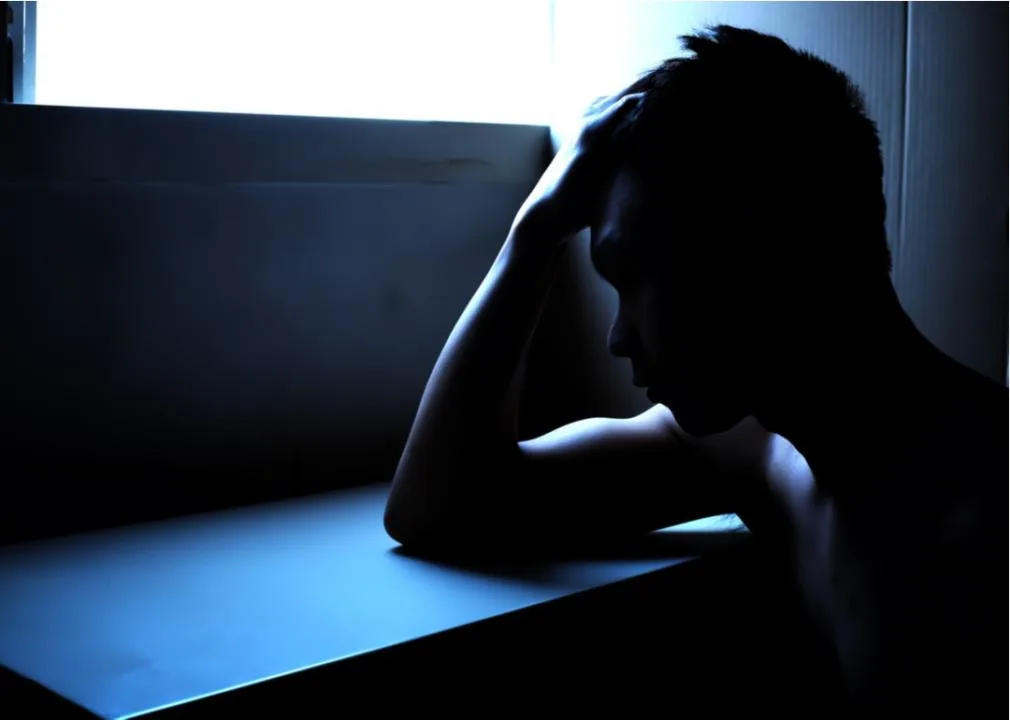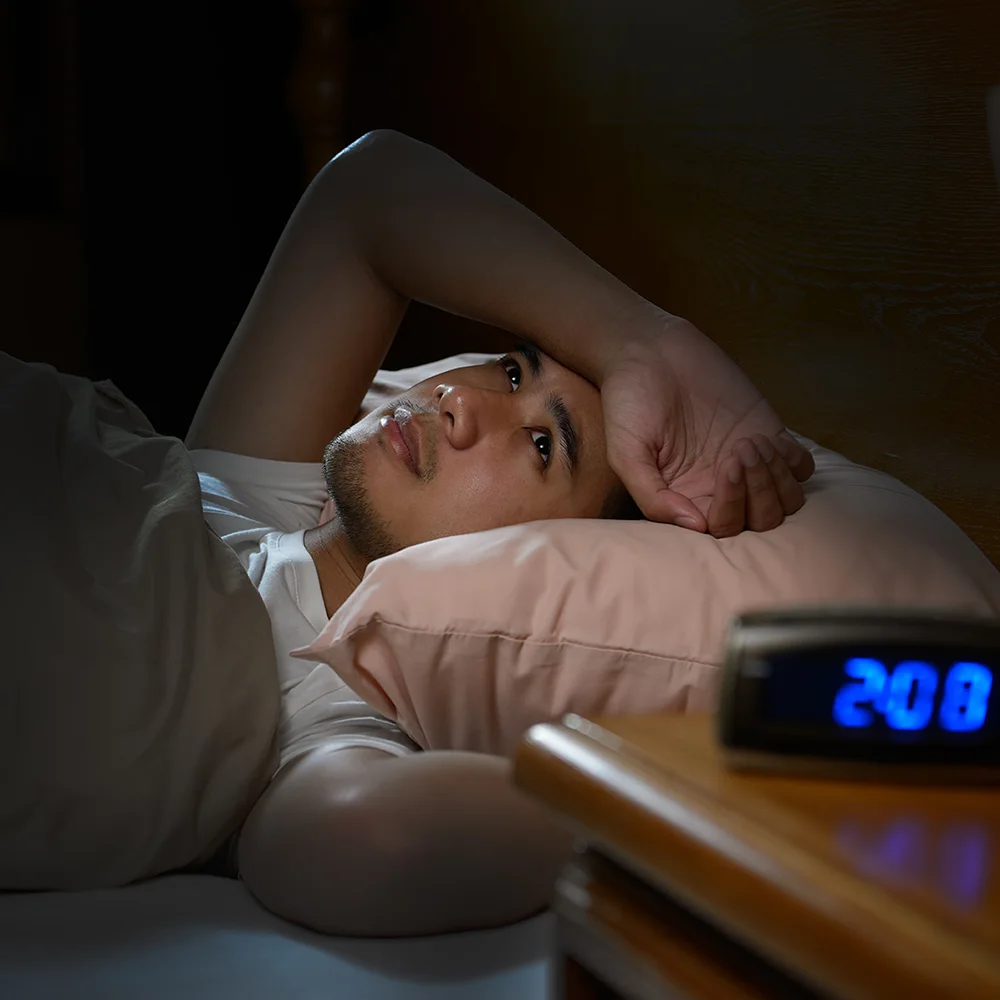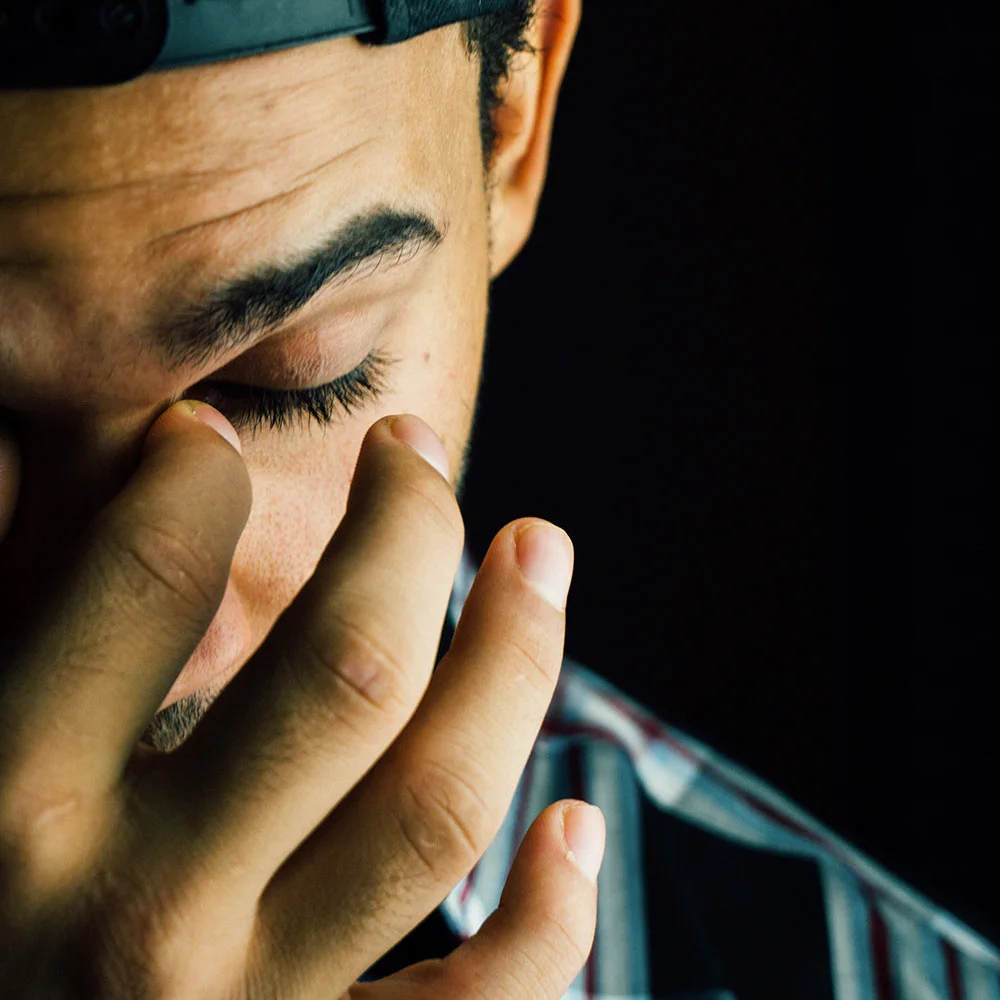Here's what we'll cover
Here's what we'll cover
A first date. A job interview. A work presentation. A major exam. These are situations where you might feel some anxiety. That’s totally normal because anxiety is a natural response to stress, whether real or imagined.
In this article, we’ll explore the different types of anxiety, along with treatments that work.
What is anxiety?
Our bodies evolved to react to stressful or fearful experiences with a “fight-or-flight” response. This response is when hormones and neurotransmitters rush to specific body systems to help you fight or run away from a potentially dangerous or frightening situation. It’s an essential messaging system from prehistoric times that motivates you to take immediate action (Chand, 2021).
Normal anxiety may help you boost your performance if needed. But normal anxiety is not constant—it’s intermittent and only occurs when real-life situations require you to be at your sharpest (Chand, 2021).
Some people routinely have thoughts or experiences that make it hard to switch off their minds from the constant barrage of excessive fear and worry. If you have persistent anxiety, you’re not alone. An estimated 20% of people suffer from an anxiety disorder. In extreme cases of anxiety, some people may stop their daily activities, avoiding people, social interactions, dogs, or elevators. Some stop leaving their homes altogether (Munir, 2017). Most people with anxiety can function normally, though.
What causes anxiety?
Scientists and researchers say there are many causes for anxiety and anxiety disorders. Your genetics, environment, brain chemistry, and the way your brain processes fear all play a role in how you handle anxiety (Locke, 2015).
Physical causes of anxiety
Some people have other underlying health conditions that affect their ability to handle stress. These health conditions may include thyroid disease, diabetes, heart disease, asthma, irritable bowel syndrome, or chronic pain. For some people, anxiety may be the first symptom of any of these medical conditions. People with a family history of anxiety disorders are also at increased risk of developing one (Locke, 2015).
Emotional causes of anxiety
People also have an increased risk of developing an anxiety disorder if they (Locke, 2015):
Have experienced traumatic events or abuse
Live with or have survived a serious illness
Have another mental illness
Drug and supplement causes of anxiety
Some substances can cause anxiety. Certain prescription medications, including steroids and stimulants used to treat attention deficit disorder, can make you experience anxiety. Over-the-counter medications like decongestants, herbal supplements for weight loss, and caffeine (including popular drinks like Redbull) can increase anxiety. Some medicines cause anxiety when you stop taking them, especially anti-anxiety drugs (like Xanax) and seizure medication. People who abuse or misuse alcohol and people with a substance abuse problem may also show higher than normal anxiety (Locke, 2015).
Other risk factors for anxiety
Women have twice the risk of anxiety disorders than men. We still don’t know why this is. It may be that women are more prone to have anxiety; or, it could be that men don’t seek mental help as often as women. Gender bias may play a role in diagnoses, as well (Locke, 2015).
Women and men report different symptoms of anxiety disorders. Women usually say they have more physical symptoms like nausea, shortness of breath, and chest pain. Men state they have more emotional or psychological symptoms like feeling irritable, tense, or upset. All of these are real symptoms of anxiety (Locke, 2015).
What are the different types of anxiety disorders?
There are several types of anxiety disorders. If you’re experiencing anxiety and excessive fear, you may wonder what kind of anxiety disorder you have. In general, there are four symptoms that all types of anxiety disorders share:
You feel constantly worried.
Your anxiety interferes with your daily life.
You avoid doing certain things because of your anxiety.
You have intense fear and can’t stop feeling scared even if you know your fear is irrational.
Generalized anxiety disorder
Generalized anxiety disorder (GAD) is when excessive worry interferes with the way you live your life. If you have been diagnosed with GAD, you’ve probably felt anxious or worried for much of your life. Some people with GAD also suffer from depression. People with GAD don’t typically have an increased risk of other mental health disorders like psychotic disorder or bipolar disorder (Munir, 2021).
Panic disorder
Panic disorder is when a person keeps having panic attacks. There are often no warnings that a panic attack will happen. For people with panic disorder, besides the panic attacks themselves, some develop anxiety about when the next panic attack will occur.
Panic disorder and panic attacks are common anxiety disorders but are considered separate mental health disorders. A person may have a panic attack but will only be diagnosed with a panic disorder if they experience:
At least one month or more of worry about having another panic attack, or
Avoid their normal behaviors out of fear of having another panic attack
Panic attacks have at least four or more physical symptoms together with mental/emotional reactions.
Some physical symptoms include chest pain, increased heart rate, pounding heart, heart palpitations, shortness of breath, feeling choked, smothered, sweaty or cold, shaky, dizzy, numbness, tingling, and nausea.
Mental or emotional symptoms include fear that you’re not real (derealization), having an out-of-body experience (depersonalization), dying, or losing total control (Cackovic, 2020).
Panic attacks can happen very frequently or just a few times a year. Either way, they are frightening and can be debilitating (Cackovic, 2020).
Phobias
Phobias are irrational and extreme fear of a distinct object, activity, or situation. Examples of specific phobias include fear of tight spaces (claustrophobia), spiders (arachnophobia), dogs (cynophobia), or leaving the house (agoraphobia). Specific phobias are among the most common anxiety disorders, affecting about 5–10 percent of the population. Phobias tend not to get better on their own and require mental health professional help. Most people with phobias respond well to psychiatric and psychological treatment (Samra, 2020).
Separation anxiety disorder
Separation anxiety disorder (SAD) is usually found in small children separated from their parents. It is normal in babies and toddlers up to three years of age. There are some children and even adults who have separation anxiety disorder. New research into adult-onset SAD links this disorder to panic disorder. Treatment for separation anxiety disorder for children and adults requires a mental health professional assessment (Feriante, 2021).
Social anxiety
Social anxiety disorder or social phobia is when you’re extremely worried about being judged negatively or feel embarrassed and highly anxious in any kind of social situation.
Parties, small talk, and conferences can all feel terrifying for someone with this disorder. This anxiety disorder usually starts in adolescence. More women than men tend to be diagnosed with social anxiety disorder (Rose, 2021).
Certain anxiety-producing disorders have changed where they are listed in the latest edition of the Diagnostic and Statistical Manual of Mental Disorders, Fifth Edition (DSM-5).
Obsessive-compulsive disorder (OCD), or recurring irrational thoughts and behaviors, is now considered a compulsive disorder, rather than an anxiety disorder. Similarly, post-traumatic stress disorder (PTSD), which can cause anxiety after a traumatic event, is now considered a trauma-related disorder.
How does anxiety make you feel?
Every person is unique, and your experience with anxiety may not be the same as others. Some people just have physical symptoms of anxiety disorders, while others may have a combination of both mental and physical symptoms (Chand, 2021).
Physical effects of anxiety can include a fast heart rate, shortness of breath, muscle tension or tightness, sweating more than usual, trembling, weakness, exhaustion, constipation or diarrhea, and difficulty falling or staying asleep.
Emotional and mental effects of anxiety can include feeling nervous, restless, not thinking clearly, difficulty focusing or concentrating, and constantly scanning for danger (Chand, 2021).
The physical symptoms are indeed real, and people with anxiety may think they’re sick. That’s why it’s essential to seek medical advice whenever you experience any of these symptoms.
What does anxiety do to your body?
Your body’s fight or flight reaction is activated when you have anxiety. Your body releases the hormones cortisol and adrenaline, and they can have a significant impact on different parts of the body. These hormones help raise your heart and breathing rate, so your brain gets more oxygen quickly, and your limbs get blood faster so you can run or fight if you need to (Chand, 2021).
Usually, these hormones do their thing for a short time only, and your body goes back to its regular function once the stressful event is over. However, continuous anxiety floods your body with these hormones and neurotransmitters. Here are some of the ways anxiety disorders affect your body (Chand, 2021).
Effects on the head
People with anxiety experience dizziness, stress or tension-type headaches, and an increased risk of depression (Chand, 2021).
Effects on the heart
Anxiety can increase your heart rate and rhythm. Some people have chest pain. These effects can raise the risk of high blood pressure and developing heart disease. People who already have heart disease have an increased risk of heart attacks (Chand, 2021).
Effects on the lungs
People with anxiety can have rapid and shallow breathing. Others may have shortness of breath. Some even hyperventilate. If you’ve been diagnosed with asthma or chronic obstructive pulmonary disease (COPD), anxiety can worsen your symptoms (Chand, 2021).
Effects on the stomach
People with anxiety can have nausea, diarrhea, and stomachaches. Some people lose their appetite. There is a link between stress and irritable bowel syndrome. People with IBS can have vomiting, constipation, diarrhea, or general abdominal discomfort (Chand, 2021).
Effects on immunity
The hormones in “fight-or-flight” are also the hormones that impact your immune system. If these hormones stay in the “on” position and don’t go back to their normal levels, your body’s immune system can’t respond appropriately. This makes you more susceptible to bacterial and viral infections. People with anxiety disorders seem to suffer more illnesses than people who don’t have anxiety disorders (Chand, 2021).
How do I get a diagnosis of anxiety?
Anxiety doesn’t have a single cause, and there isn’t one test to determine if you have it. To get a proper diagnosis, you will need to visit a healthcare professional.
You will have a thorough physical exam, including blood work, to rule out an underlying health condition or other mental health condition. Your healthcare professional may also ask about your medications, supplements, herbal remedies, alcohol, or substance use, as these can cause anxiety in sensitive people (Locke, 2015).
If you keep having symptoms that last longer than six months or are intolerable, seek medical attention. There are treatments available, and you do not need to suffer in silence.
What are treatments for anxiety?
Once you have a definitive diagnosis, you have treatment options. You can try talk therapy or medication. Many people find the most effective way to treat their anxiety symptoms is a combination of both treatments (Thibaut, 2017).
Talk therapy
One of the most effective talk therapy for anxiety disorders is cognitive behavioral therapy (CBT). This type of therapy helps you identify the source of your anxiety, worry, and fear. It teaches tools and skills to help you decrease and manage your symptoms. You can have one-on-one or group CBT therapy, either in-person or online. Most people see their CBT mental health professional for six to 12 weeks for one-hour sessions at least once per week (Bandelow, 2017; Carl, 2020).
Medications
The most common medications used to treat anxiety disorders include antidepressants, benzodiazepines, and beta-blockers.
Most healthcare professionals start by prescribing selective serotonin reuptake inhibitors (SSRIs), a type of antidepressant. These include citalopram (Celexa), escitalopram (Lexapro), paroxetine (Paxil), fluoxetine (Prozac), and sertraline (Zoloft). Antidepressant treatment is usually a long-term treatment (Bandelow, 2017).
Benzodiazepines (a type of sedative), like lorazepam (Ativan) and clonazepam (Klonopin), are used as anti-anxiety medications for the short-term management of anxiety symptoms. Sometimes, alprazolam (Xanax) is used to treat panic attacks. However, the anti-anxiety effects don’t last as long, so people need to take it more often. Benzodiazepines are not usually the first choice of treatment because they can be addictive. Some people experience high levels of anxiety when they try to wean themselves off of these medications (Bandelow, 2017).
Sertraline Important Safety Information: Read more about serious warnings and safety info.
Some of the symptoms of an anxiety disorder include higher than normal blood pressure and heart rate. Beta-blockers, a type of medication used to control high blood pressure, can help decrease some of the effects of adrenaline in anxiety disorders. These are most often used for test or performance anxiety (such as before speaking publicly). Some healthcare professionals recommend beta-blockers for people who suffer panic attacks (Chand, 2021).
All medications have side effects, so be sure to discuss any troublesome side effects with your healthcare provider.
Alternative treatments for anxiety disorder
Some people may want to try a more natural approach to treating their symptoms of anxiety disorder. Some complementary treatments include acupuncture, hypnosis, and herbs. Herbal preparations include teas and using essential oils. The most common ones used to treat anxiety include passionflower, valerian, lavender, and kava. There is limited data on how effective any of these natural treatments are.
Self-help for symptoms of anxiety
Even if you’re not diagnosed with an anxiety disorder, you can feel anxious about different stressors in your life. These might include challenges at home, at work, or even with a family member. If you make minor adjustments to improve your health and lifestyle, you may be better able to handle stress and anxiety!
Here are some tips and tricks to try (Bandelow, 2017):
Move your body: Exercising at least 150 minutes a week and moving your arms and legs can help you relieve your anxiety. Aim for 30 minutes at least five times a week. If you can’t do 30 minutes at a time, break it up into smaller chunks of time.
Practice : Meditation and deep breathing can help you manage the symptoms of anxiety.
Improve your sleep: Broken, inadequate, or no sleep increases your stress levels and anxiety. Practice good sleep hygiene and get some quality rest.
Reduce substances: If you drink many caffeinated beverages (coffee or energy drinks) or alcohol, try to reduce your consumption. Caffeine and alcohol can increase symptoms of anxiety. Nicotine is also a stimulant and leads to more stress, so quitting smoking can help relieve your symptoms.
Lean on friends and family: Being and feeling alone can worsen your feelings of anxiety. Join a support group or talk to a loved one.
The last word on anxiety
If you continue to have symptoms, even after using self-help strategies or talk therapy, please consult with a healthcare professional to check for an underlying health condition.
DISCLAIMER
If you have any medical questions or concerns, please talk to your healthcare provider. The articles on Health Guide are underpinned by peer-reviewed research and information drawn from medical societies and governmental agencies. However, they are not a substitute for professional medical advice, diagnosis, or treatment.
Bandelow, B., Michaelis, S., & Wedekind, D. (2017). Treatment of anxiety disorders. Dialogues in Clinical Neuroscience, 19 (2), 93–107. doi: 10.31887/DCNS.2017.19.2/bbandelow. Retrieved from: https://www.ncbi.nlm.nih.gov/pmc/articles/PMC5573566/
Cackovic, C., Nazir, S., & Marwaha, R. (2020). Panic disorder (attack). StatPearls [Internet]. Retrieved from: https://www.statpearls.com/ArticleLibrary/viewarticle/26587
Carl, E., Witcraft, S. M., Kauffman, B. Y., Gillespie, E. M., Becker, E. S., Cuijpers, P., et al. (2020). Psychological and pharmacological treatments for generalized anxiety disorder (GAD): a meta-analysis of randomized controlled trials. Cognitive Behaviour Therapy, 49 (1), 1–21. doi: 10.1080/16506073.2018.1560358. Retrieved from: https://www.ncbi.nlm.nih.gov/pmc/articles/PMC7063818/
Chand, S. P., Marwaha, R., & Bender, R. M. (2021). Anxiety (nursing). StatPearls . Retrieved from: https://www.statpearls.com/ArticleLibrary/viewarticle/17728
Crocq M. A. (2017). The history of generalized anxiety disorder as a diagnostic category. Dialogues in Clinical Neuroscience, 19 (2), 107–116. doi: 10.31887/DCNS.2017.19.2/macrocq. Retrieved from: https://www.ncbi.nlm.nih.gov/pmc/articles/PMC5573555/
Feriante, J., & Bernstein, B. (2020). Separation anxiety. StatPearls [Internet]. Retrieved from: https://www.statpearls.com/ArticleLibrary/viewarticle/28899
Locke, A., Kirst, N., & Shultz, C. G. (2015). Diagnosis and management of generalized anxiety disorder and panic disorder in adults. American Family Physician, 91 (9), 617-624. Retrieved from: https://www.aafp.org/pubs/afp/issues/2015/0501/p617.html
Munir, S., Gondal, Z., & Takov, V. (2017). Generalized anxiety disorder (GAD). StatPearls [Internet]. Retrieved from: https://www.statpearls.com/ArticleLibrary/viewarticle/22130
Rose, G. M., & Tadi, P. (2021). Social anxiety disorder. StatPearls [Internet]. Retrieved from: https://www.statpearls.com/ArticleLibrary/viewarticle/29183
Samra, C. K., & Abdijadid, S. (2020). Specific phobia. StatPearls [Internet]. Retrieved from: https://www.statpearls.com/ArticleLibrary/viewarticle/29262
Thibaut F. (2017). Anxiety disorders: a review of current literature. Dialogues in Clinical Neuroscience, 19 (2), 87–88. doi: 10.31887/DCNS.2017.19.2/fthibaut. Retrieved from: https://www.ncbi.nlm.nih.gov/pmc/articles/PMC5573565/












